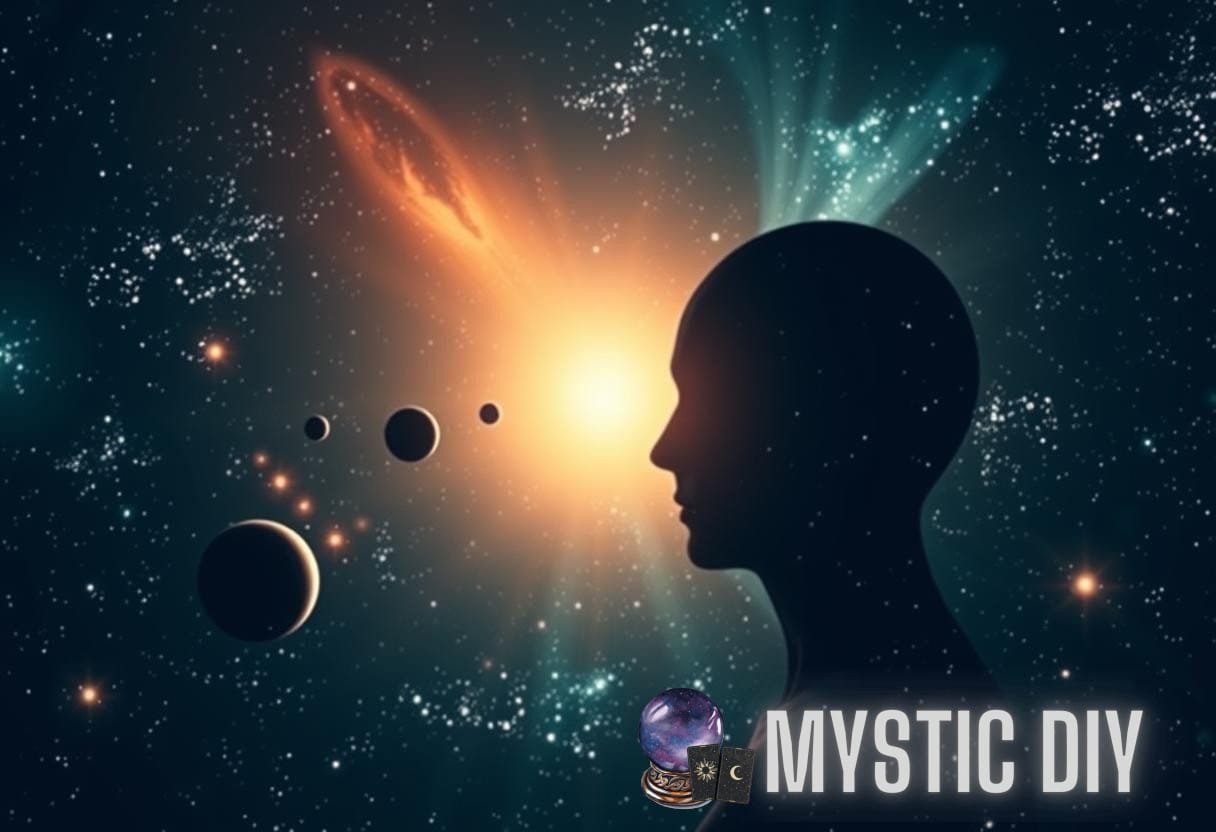Celestial Interplay: Analyzing the Scientific Impact of Planetary Alignments on Human Psychology and Behavior
The cosmos has intrigued humanity since the dawn of time. Among its many wonders, planetary alignments have sparked questions about their influence on human psychology and behavior. The concept known as planetary psychology effects gains traction as more people seek to understand how the movements of celestial bodies resonate with psychological states.
The Historical Context of Astrology
Astrology has ancient roots, with civilizations like the Babylonians, Egyptians, and Greeks incorporating celestial patterns into their understanding of life. For thousands of years, humans have observed the movements of planets in relation to astrological predictions. Historical texts reveal that astrology was used to make important decisions, from agricultural cycles to political strategies.
In 2nd-century Egypt, Claudius Ptolemy’s work established a foundation for Western astrology, which significantly influenced subsequent generations. The Ptolemaic model emphasized the importance of planetary positions and their associations with human affairs, setting the stage for future explorations into the field of planetary psychology effects.
Understanding Planetary Alignments
Planetary alignments occur when planets appear to be in a straight line or close to each other in the sky from Earth’s perspective. These events are measured in terms of their proximity in degrees and can fluctuate significantly in their energetic output. Some notable alignments, such as conjunctions and oppositions, can last from hours to several days. The key alignments include:
- Conjunctions: When two planets align closely, enhancing their energies.
- Oppositions: When planets face each other, often creating tension.
- Trines: When planets are 120 degrees apart, typically generating harmony.
Research into these alignments indicates a historical belief in their psychological impacts, ranging from emotional stability to heightened creativity.
Scientific Approaches to Astrology
The scientific community has approached astrology with skepticism, classifying it as a pseudoscience. However, several studies have attempted to examine the validity of astrological claims. In a study published in the journal Scientific American, researchers analyzed correlations between planetary positions and human behavior. While results showed some patterns, they also revealed a lack of robust evidence supporting causal relationships.
Another crucial study by Dr. Michel Gauquelin examined the concept of “cosmic rays on human life,” finding significant correlations between planetary positions and the professional success of certain individuals. Although the interpretations differ, such research attempts to quantify planetary psychology effects.
Psychological Theories Related to Planetary Alignments
Several psychological theories explore how the environment influences human behavior. One relevant framework is the Biopsychosocial Model, which posits that biological, psychological, and social factors interact to shape individual experiences. Within this model, planetary alignments may be regarded as a contributing environmental element, albeit in the background of more dominant forces such as genetics and social context.
Another theory worth considering is Carl Jung’s concept of synchronicity, which suggests that events can be meaningfully related without any apparent causal relationship. Astrological synchronicity posits that planetary alignments can coincide with specific emotional states or life events, influencing people’s psychological responses and behavioral patterns.
Peer-Reviewed Studies on Astrology and Human Behavior
Even though the prevailing academic opinion remains skeptical, several peer-reviewed studies explore the connections between astrology and human behavior. Here are some notable ones:
- Astrological Natal Charts: According to a study published in Personality and Individual Differences, researchers found correlations between birth date, psychological attributes, and behavior. While causation was not established, the findings suggest potential links worth exploring further.
- Eclipse Effects: A study in the Journal of Social Psychology examined the psychological effects of solar eclipses on human mood and behavior, noting an uptick in anxiety levels coinciding with eclipse events.
Real-World Examples: Key Historical Events and Planetary Alignments

Throughout history, specific planetary alignments have coincided with significant global events, leading some to speculate about their potential psychological impacts:
- The Great Conjunction of 2020: The meeting of Jupiter and Saturn in December 2020 was heralded as a time of transformation. Many people reported feelings of optimism and change, aligning with theories regarding the communal expectations for the new year that followed.
- U.S. Stock Market Crashes: Researchers have observed correlations between planetary movements and market downturns, suggesting that mass psychological states influenced investor behavior in times of astrological significance.
These occurrences prompt questions about whether planetary psychology effects shape collective behaviors, paired with transformative life events.
Planetary Alignments and Mental Health
Understanding the impact of planetary alignments on mental health is a burgeoning area of research. A survey of individuals’ emotional well-being during notable planetary alignments revealed that many reported feelings of heightened anxiety and restlessness. Here are some examples:
- Full Moons: Many believe that the full moon affects moods and behaviors, leading to increased reports of anxiety and disturbances during these nights.
- Saturn Returns: This astrological event, occurring approximately every 29.5 years, is thought to correlate with significant psychological growth and development, often coinciding with challenging life transitions.
Such patterns raise essential questions regarding the extent to which these cosmic events align with human experiences within the framework of mental health.
The Role of Cultural Beliefs in Planetary Psychology Effects
Cultural beliefs significantly shape how individuals respond to celestial events. In many cultures, planetary movements are imbued with meaning, influencing rituals, traditions, and social behaviors. For example:
- Vedic Astrology (Jyotish): In Indian traditions, planetary positions profoundly impact social life, influencing significant events from marriages to career decisions.
- Chinese Astrology: The Chinese zodiac incorporates planetary alignments and lunar cycles, assigning personality traits based on birth years, affecting social interactions and relationships.
Such cultural contexts highlight how the planetary psychology effects are experienced variably around the globe.
The Future of Research on Planetary Psychology Effects
The potential for further exploration of the intersection between astrology and psychological science remains vast. Future studies could explore the following areas:
- Statistical Modeling: Employing advanced statistical techniques to discern patterns between planetary positions and psychological states, integrating larger datasets for comprehensive insights.
- Longitudinal Studies: Investigating the long-term psychological effects of individuals who consciously track and align their lives with astrological occurrences.
- Collaborative Approaches: Encouraging collaboration between astrologers and psychological researchers may create a bridge for nuanced exploration of astrology’s validity and its psychological implications.
Conclusion
As we continue to explore the cosmos, the intricate interplay of planetary alignments and human psychology remains a fascinating field of study. Despite skepticism, the historical context, cultural influences, and anecdotal evidence surrounding planetary psychology effects attract interest from individuals seeking to understand how celestial events intertwine with human behavior.
By engaging in thorough research and discourse, society can unravel the mysteries of astrology, potentially leading to a shift in how we perceive and understand the human experience in relation to the universe.



